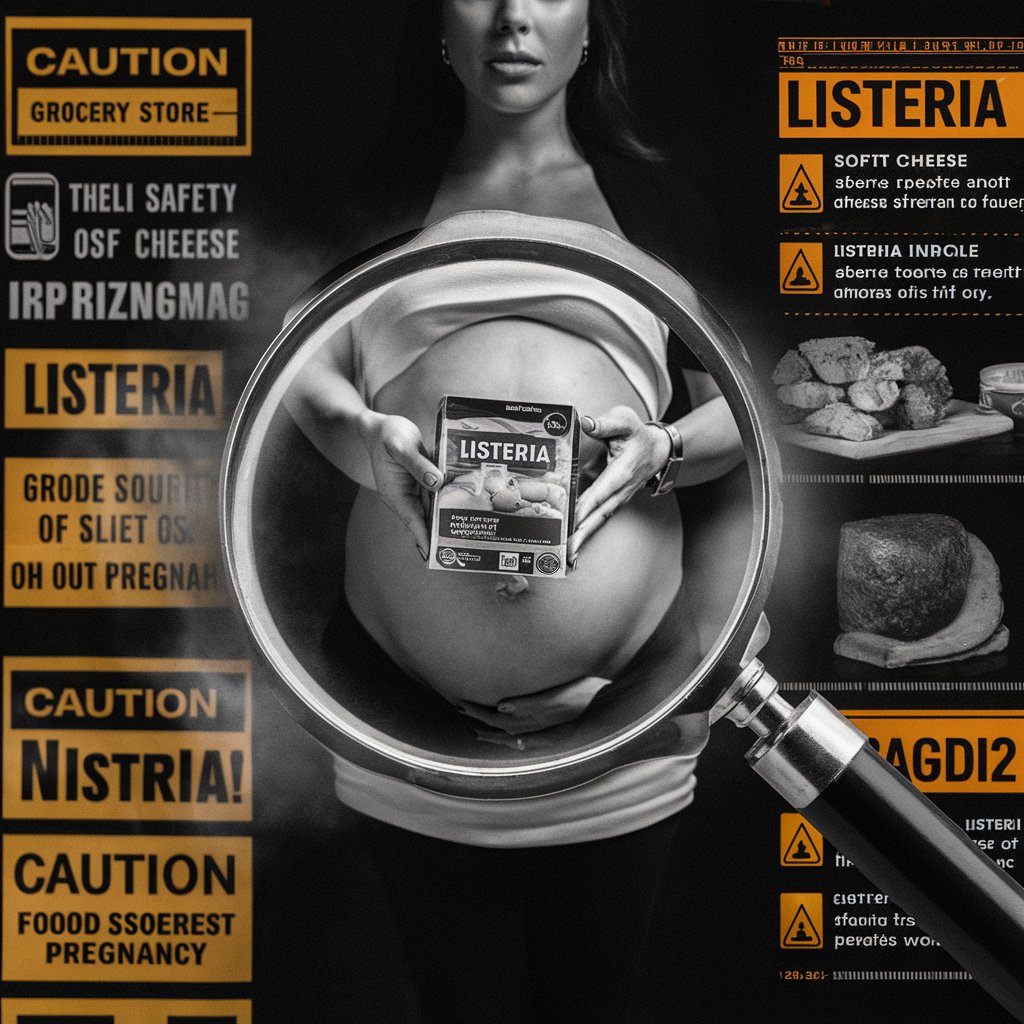As a healthcare professional, it's essential to highlight the serious risks associated with Listeria infection, especially in pregnant women. Listeria monocytogenes, commonly found in refrigerated foods, poses a significant threat to both the expecting mother and her unborn child.
The Hidden Dangers of Listeria
Listeria monocytogenes, often dubbed the "number one refrigerator killer," can thrive in cold environments, making refrigerators a common breeding ground. Despite the low temperatures, Listeria can survive and multiply, posing a hidden danger to pregnant women who consume contaminated foods.

Case Studies and Statistics
- United States: In 2011, a Listeria outbreak linked to contaminated cantaloupes resulted in 72 illnesses and 13 deaths, marking one of the worst foodborne illness outbreaks in the U.S. since 2000.
- Australia: In 2017, a Listeria outbreak caused by contaminated melons led to six deaths, with victims primarily being elderly or pregnant women.

- China: In 2013, a pregnant woman in Beijing lost her twins due to a Listeria infection. Similarly, in 2017, a pregnant woman in Hangzhou suffered a stillbirth due to the same infection.
- South Africa: Between 2017 and 2018, the largest recorded Listeria outbreak resulted in 1,024 confirmed cases and 107 deaths, with many cases involving pregnant women and newborns.
- Europe: In 2018, a Listeria outbreak linked to frozen vegetables resulted in 47 illnesses and 9 deaths.
- Spain (2019): Contaminated packaged meat - This outbreak resulted in over 200 confirmed cases and three deaths. It was primarily linked to a brand of packaged meat products, affecting mostly elderly individuals and pregnant women.
- United States (2020): Enoki mushrooms - This outbreak led to 36 illnesses, 31 hospitalizations, and four deaths across 17 states. The infections were linked to enoki mushrooms imported from South Korea.
- Germany (2021): Contaminated sausage products - The outbreak caused at least three deaths and several serious illnesses. The contamination was traced back to a sausage manufacturing plant, leading to widespread recalls.
- Canada (2022): Deli meats - This outbreak involved 23 cases of Listeriosis and five deaths. The source was identified as a specific brand of deli meats, prompting a nationwide recall.
- Netherlands (2023): Soft cheeses - The outbreak resulted in 19 confirmed cases and two deaths. The infections were linked to a popular brand of soft cheese, which was subsequently recalled from stores across the country.
- France (2024): Pre-packaged salads - This outbreak led to 15 illnesses, 10 hospitalizations, and one death. It was traced back to pre-packaged salads sold in multiple supermarkets, leading to a major recall and heightened awareness about food safety.
The Ongoing Threat
Listeria continues to pose a significant threat worldwide, particularly to vulnerable populations such as pregnant women, the elderly, and those with weakened immune systems. The persistence of Listeria outbreaks in recent years highlights the ongoing risk and the need for continued watchfulness in food safety practices.
Food Industry: Manufacturers must adhere to strict hygiene and safety standards, including regular inspections and testing for Listeria contamination.
Consumers: Pregnant women should remain vigilant about their food choices, avoiding high-risk foods and ensuring proper food handling and storage practices.
By staying informed and adopting preventive measures, we can work towards reducing the incidence of Listeria outbreaks and safeguarding public health.

The Impact on Pregnant Women and Their Babies
Pregnant women are at a higher risk of Listeria infection due to their altered immune response. The consequences of Listeria infection during pregnancy can be devastating:
- Early Pregnancy: Listeria can cause miscarriage or embryonic death.
- Mid to Late Pregnancy: The infection can lead to reduced fetal movements, fetal distress, stillbirth, or premature birth.
- Newborns: Babies born to infected mothers are at a high risk of severe health issues, including pneumonia, sepsis, bacterial meningitis, and long-term neurological problems like intellectual disabilities, paralysis, epilepsy, and blindness.

Preventive Measures
To protect against Listeria, pregnant women should:
- Avoid Unpasteurized Foods: Stay away from unpasteurized milk and dairy products.
- Cook Thoroughly: Ensure all meats, seafood, and ready-to-eat foods are cooked thoroughly.
- Store Food Safely: Use a refrigerator purifier like the "Root Tongue Guard" to eliminate Listeria and other harmful bacteria.
- Practice Good Hygiene: Regularly clean and disinfect the refrigerator and kitchen surfaces.
Conclusion
Listeria infection poses a severe risk to pregnant women and their unborn babies. By understanding these risks and taking preventive measures, we can significantly reduce the chances of infection and ensure the health and safety of both mother and child.

